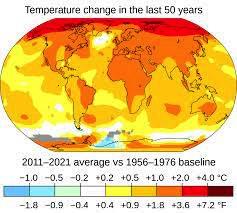 Farm Animal Investment Risk and Returns (FAIRR) has projected declining profits among intensive livestock production companies as a result of climate change. The model used assumes a temperature rise of 3.5C by 2100. This increase would inflate the cost of feed and result in other costs to mitigate global warming. FAIRR estimate a seve percent reduction in the bottom line by 2030 unless appropriate mitigation is implemented.
Farm Animal Investment Risk and Returns (FAIRR) has projected declining profits among intensive livestock production companies as a result of climate change. The model used assumes a temperature rise of 3.5C by 2100. This increase would inflate the cost of feed and result in other costs to mitigate global warming. FAIRR estimate a seve percent reduction in the bottom line by 2030 unless appropriate mitigation is implemented.
Jeremy Coller, founder of FAIRR, indicated that the projections highlight the impact of global warming on livestock producers, especially in North America, are urged to adapt by diversifying product range.
 The comment that plant-based alternatives as an alternative to red meat, poultry and eggs appears somewhat disingenuous given that the escalation in the cost of ingredients for both livestock and plant-based foods will increase proportionately, notwithstanding the inherent inefficiency associated with feed conversion.
The comment that plant-based alternatives as an alternative to red meat, poultry and eggs appears somewhat disingenuous given that the escalation in the cost of ingredients for both livestock and plant-based foods will increase proportionately, notwithstanding the inherent inefficiency associated with feed conversion.
Long-range projections are based on assumptions that may or may not be valid but any differences in the base assumptions are magnified over an extended period. Companies including Cargill, JBS SA, Tyson Foods and Cal-Maine Foods are aware of the realities of climate change and will make appropriate adjustments to optimize profit and return on investment standards for their companies and shareholders.